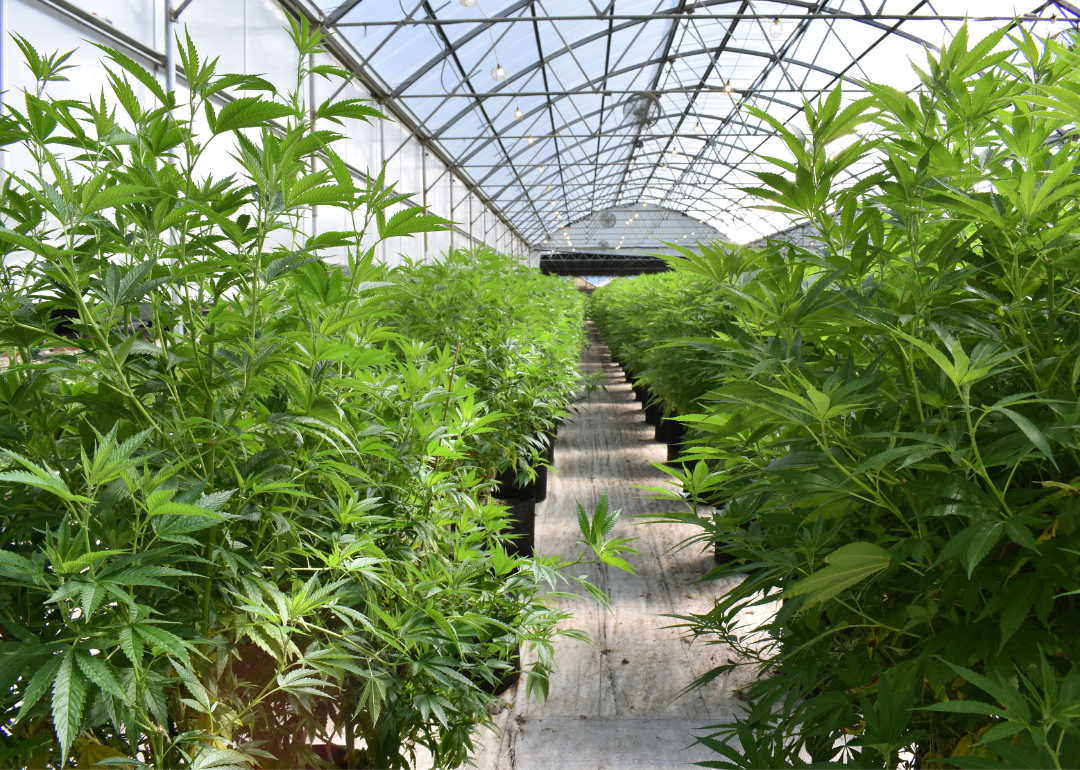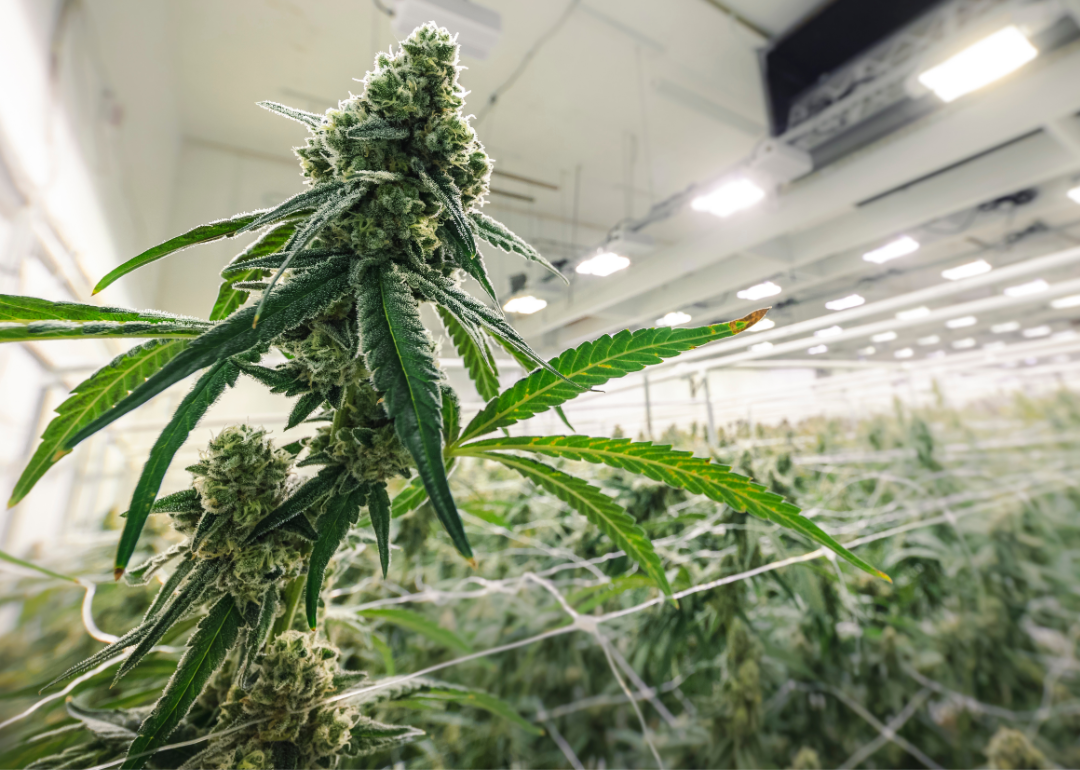Cannabis tax boom: States collect a whopping $15.1 billion in revenue since weed legalization

Canva
Cannabis tax boom: States collect a whopping $15.1 billion in revenue since weed legalization
Cannabis plants inside a growing facility.
In a stunning display of the financial potential of legal cannabis, states across the U.S. have collected a combined total of more than $15.1 billion in tax revenue from adult-use cannabis sales since 2014. As cannabis business owners navigate regulations that can change by state and face growing competition for everything from suppliers to business names, state legislators have been hammering out laws to regulate them—and their sales.
As the Marijuana Policy Project’s latest report reveals, 2022 alone saw over $3.77 billion generated in cannabis tax revenue from adult-use sales. These numbers underscore the critical role that legalization and regulation of cannabis have played in boosting state economies and funding essential social services and programs.
Toi Hutchinson, president and CEO of the Marijuana Policy Project, argues that states that haven’t yet legalized and regulated cannabis are not only doing a disservice to their constituents but are also missing out on a financial windfall. “States that have made the decision to legalize and regulate cannabis are benefiting from hundreds of millions in tax revenue each year. These new streams of revenue are helping to fund crucial social services and programs across the country, such as education, alcohol and drug treatment, veterans’ services, job training, and reinvestment in communities that have been disproportionately affected by the war on cannabis.”
However, 2022 marked a surprising turn in the cannabis tax revenue narrative. Despite new states joining the legalization movement, there was a slight decrease in total state cannabis tax revenue – from over $3.86 billion in 2021 to $3.77 billion in 2022. This was the first year to see a decrease in tax revenues compared to the prior year.
States with more mature legalization laws experienced decreases in cannabis tax revenue over the past year, while those with newer legislation generated more revenue in 2022 than in 2021. Despite the downturn, 2022 revenues in more established markets were still higher than any year pre-COVID for each state.
Andrew Livingston, director of economics and research at Vicente LLP, attributes this revenue decrease to several factors, with one likely being COVID-related. “While 2022 cannabis taxes are lower in some established markets than they were in 2021, it’s important to know how COVID-19 and pandemic-initiated lockdown orders increased cannabis demand. People could not spend their money going to concerts, going out to dinner, or vacation travel. So many people increased their consumption of consumer packaged goods. Cannabis was a product that could still be purchased and made the difficulty of staying at home for months on end watching TV shows and movies a bit more enjoyable.”
Benzinga broke down state-by-state and year-by-year tax revenue from legalized adult-use cannabis sales since 2014. The MPP’s tax revenue report delves into each legalization state’s adult-use cannabis tax structure, population, and year-by-year adult-use cannabis tax revenue.
As the country continues to grapple with the economic aftermath of the COVID-19 pandemic, the report highlights the significant financial benefits that legalizing and regulating cannabis can bring, making it a compelling option for states seeking to invest in the well-being of their communities.
![]()

Canva
Cannabis Tax Revenue State By State
A Cannabis Plant in a brightly lit greenhouse.
Twenty-two states have passed laws to legalize cannabis possession for adults 21 and older. All but two of them, Maryland and Virginia, have also legalized, regulated, and taxed cannabis sales. Several other states are building strong momentum to legalize adult-use cannabis in 2023, including Minnesota, New Hampshire, and Ohio.
2022 State-by-State Totals:
• Alaska: $28,649,408
• Arizona: $223,863,799
• California: $1,074,560,287
• Colorado: $305,034,034
• Illinois: $562,119,019
• Maine: $25,329,534
• Massachusetts: $250,710,415
• Michigan: $326,049,074
• Montana: $41,989,466
• Nevada: $196,952,338
• New Jersey: $20,139,655
• New Mexico: $36,684,235
• Rhode Island: $579,439
• Oregon: $150,316,424
• Washington: $529,443,420
• Vermont: $2,363,000
Year-by-Year Totals:
• 2014: $68,503,980
• 2015: $264,211,871
• 2016: $530,521,110
• 2017: $736,534,982
• 2018: $1,308,693,928
• 2019: $1,749,459,667
• 2020: $2,814,837,199
• 2021: $3,866,974,690
• 2022: $3,774,783,548
CUMULATIVE TOTAL: $15,114,520,975
This story was produced by Benzinga and reviewed and distributed by Stacker Media.